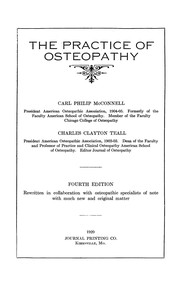Why Is Chewing Food Thoroughly So Important For Digestion?
By paying more attention to how we chew our food, we can not only prevent common digestive issues like acidity but also enhance our overall health and well-being.

Do you often feel bloated, tired after meals, or crave sweets? These discomforts might be more than just an aftereffect of what you ate-they could be signals from your body indicating that your digestion process is off track. The solution to many of these common digestive issues might be simpler than you think: chew your food more thoroughly. Many of us rush through meals, eating quickly and without paying attention to how we chew. However, chewing food thoroughly can play a pivotal role in preventing acidity, bloating, and indigestion, and even helping with sugar cravings. Nutritionist Ritika Kukreja explained this in an Instagram post.
Also Read: Chew Your Food 32 Times: Fact Or Myth? Here's What Experts Say
Here's why chewing properly is so important for your digestive health:
Digestion Starts in Your Mouth
Contrary to what many people think, digestion doesn't just start when food reaches your stomach. It actually begins in your mouth. The first step is chewing, a process that breaks down food into smaller pieces to make it easier for your stomach and intestines to process. When you chew, you're not just physically breaking down food; you're also preparing it chemically for digestion.
Saliva, produced when you chew, contains enzymes that begin breaking down carbohydrates in food. These enzymes, particularly amylase, start the process of converting starches into simpler sugars, giving your digestive system a head start. Without proper chewing, food is swallowed in larger pieces, making it more difficult for your stomach to digest. This can lead to discomfort and a range of digestive problems like gas, bloating, constipation, and even food sensitivities or allergies.
Also Read: 5 Ways To Practise Mindful Eating When Dining Out To Manage Blood Sugar
Here Are 6 Benefits of Chewing Thoroughly
Chewing may seem like a small part of the digestion process, but it has far-reaching effects on your overall health. Let's dive into the numerous benefits of chewing food slowly and thoroughly:
1. Activates Saliva Enzymes
When you chew your food thoroughly, you stimulate the production of saliva, which contains digestive enzymes such as amylase. These enzymes help break down the food before it reaches your stomach, making the digestive process smoother and more efficient. This also leads to better nutrient absorption, as smaller food particles are easier for your body to digest.
2. Reduces Bloating
Bloating often occurs when your digestive system is struggling to break down food properly. When you chew food properly, you break it down into smaller, digestible pieces, which means your stomach doesn't have to work as hard. As a result, there's less chance of undigested food fermenting in your stomach or intestines, leading to gas and bloating. Thorough chewing also helps your stomach release digestive juices more efficiently, improving the breakdown of food.
3. Promotes Fullness and Prevents Overeating
Chewing food thoroughly can help you feel fuller faster, which can prevent overeating. When you eat slowly and chew well, your body has more time to signal to your brain that you've had enough to eat. This process takes about 20 minutes, so eating too quickly may lead to overeating before your body has a chance to register fullness. Chewing slowly helps you savour your meal, ensuring that you consume just the right amount.
4. Balances Blood Sugar Levels
Chewing your food well can also help regulate your blood sugar levels. When food is broken down into smaller particles, glucose is released into your bloodstream more gradually. This steady release of sugar prevents sharp spikes in blood sugar that could lead to energy crashes, sugar cravings, and even insulin resistance over time. By chewing thoroughly, you support a balanced blood sugar level, which can also help reduce cravings for sugary foods.
5. Better Nutrient Absorption
The more thoroughly you chew your food, the better your body can absorb its nutrients. Chewing breaks down food into smaller pieces, allowing your stomach and intestines to do their job more efficiently. When food is broken down properly, your body can absorb vitamins, minerals, and other essential nutrients, which play a crucial role in your overall health. This means that thorough chewing doesn't just improve digestion; it also supports your body's nutritional needs.
6. Improved Gut Health
Saliva also contains a protein called Epithelial Growth Factor (EGF), which plays a vital role in the regeneration and repair of the gut lining. When you chew thoroughly, you increase the production of EGF, which helps maintain the health of your digestive tract. A healthy gut lining is essential for preventing conditions like leaky gut syndrome, and it can also enhance your body's ability to absorb nutrients from food.
Also Read: Mindful Eating: A Relaxing Approach For Your Journey To Good Health
How Much Should You Chew?
So, how much should you chew to reap these digestive benefits? While the ideal number of chews can vary depending on the type of food, experts generally recommend chewing each bite around 32 times. This is based on the number of chews often suggested in studies for optimal digestion. However, foods vary in texture, and some may require more chewing:
For tougher foods like nuts or meat, you may need to chew up to 40 times to break them down adequately. Softer foods, like watermelon, may only require 5-10 chews before swallowing.
Remember, the goal is to break down food as much as possible before it enters your stomach to make the digestive process easier on your system.
The Consequences of Not Chewing Enough
Failing to chew your food thoroughly can lead to several digestive problems. Large food particles that aren't properly broken down may not be fully digested in the stomach, which can lead to bloating, gas, indigestion, and discomfort. In the worst cases, improper chewing can also lead to acid reflux or heartburn. This happens because larger food particles can irritate the stomach lining, causing an increase in acid production. By chewing well, you give your stomach a better chance to handle and digest food efficiently.
Digestion starts in your mouth, and the simple act of chewing your food thoroughly can have profound effects on your overall health. From reducing bloating and improving nutrient absorption to balancing blood sugar levels and promoting better gut health, proper chewing is an easy yet powerful tool for better digestion. So, next time you sit down for a meal, slow down and chew your food well - your digestive system will thank you!
It's a small habit that can lead to big results!












)



























































